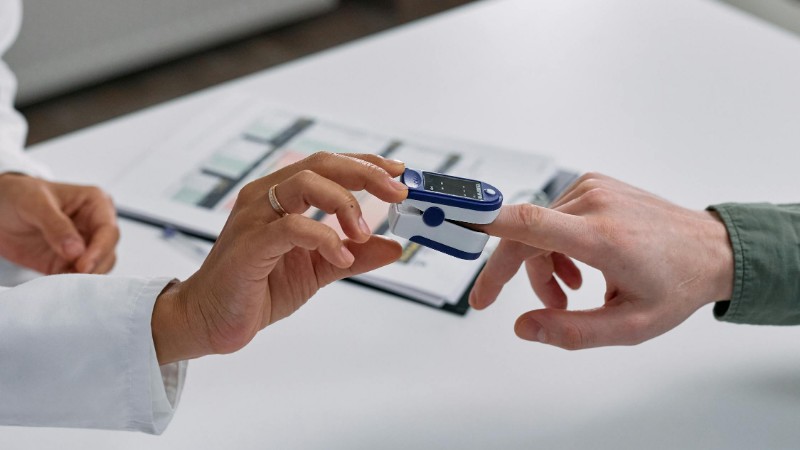Li Lilly’s tirzepatide, marketed as Mounjaro for type 2 diabetes and Zepbound for chronic weight management, has recently shown a significant reduction in the risk of type 2 diabetes in overweight and obese adults.
The latest topline data from the Phase III SURMOUNT-1 trial, which followed participants for over three years, reveal that tirzepatide reduces the risk of progressing from prediabetes to type 2 diabetes by an extraordinary 94%. This considerable reduction was observed in a group of over 1,000 people who were overweight or obese and prediabetic at the start of the research.
Key Takeaways
Tirzepatide, marketed as Mounjaro for type 2 diabetes and Zepbound for chronic weight management, has shown a significant reduction in the risk of type 2 diabetes in overweight and obese adults.
- Tirzepatide reduces the risk of progressing from prediabetes to type 2 diabetes by an extraordinary 94%.
- The medication leads to notable weight loss among participants, with up to 22.9% body weight reduction depending on the dosage.
- Tirzepatide’s dual action targets two key hormones—glucagon-like peptide-1 (GLP-1) and glucose-dependent insulinotropic polypeptide (GIP)—to manage blood sugar levels and appetite.
Significant weight loss and diabetes risk reduction
In addition to its impressive impact on diabetes risk, tirzepatide also led to notable weight loss among participants. The SURMOUNT-1 trial showed that patients who took tirzepatide lost up to 22.9% of their body weight, depending on the dosage. Specifically, the highest dose of 15 mg resulted in the greatest weight loss.
Participants who took tirzepatide lost weight consistently throughout the research, whereas those who took a placebo observed negligible improvements. This consistent weight loss is crucial since it contributes to the drug’s efficacy in avoiding diabetes.
By targeting two key hormones—glucagon-like peptide-1 (GLP-1) and glucose-dependent insulinotropic polypeptide (GIP)—this medication manages blood sugar levels and appetite. Its dual action leads to significant weight loss, making it an effective strategy for controlling prediabetes and preventing type 2 diabetes, especially in those who are overweight or obese.
Expert insights on tirzepatide’s impact
Dr. Michael Weintraub, a clinical associate professor of endocrinology at NYU Langone Health, emphasized the significance of the findings. “We don’t have any medication approved to treat prediabetes right now,” he stated.
📉#Tirzepatide reduces the progression of #prediabetes to #Type2Diabetes by 94% compared to placebo 👀, according to SURMOUNT-1 trial results 👏
Treatment of the underlying obesity improves overall health and prevents obesity-related complications.
These data add to an ever…
— Michael Weintraub, MD (@MWeintraubMD) September 5, 2024
The potential of tirzepatide to address this gap could enable earlier intervention for individuals at risk of developing diabetes, potentially preventing the disease and reducing associated health complications, such as cardiovascular disease. Tirzepatide provides a unique opportunity to improve long-term health outcomes by proactively tackling obesity and prediabetes.
Tirzepatide’s safety profile over the study period was consistent with earlier results. Common side effects were mainly gastrointestinal, including diarrhea, nausea, constipation, and vomiting. Serious side effects, including pancreatitis and thyroid tumors, were closely monitored, and explicit guidelines for risk management were provided.
Future research and challenges
The SURMOUNT-1 trial expands on 2022 findings by assessing tirzepatide’s long-term effects on diabetes prevention, not just weight loss. According to analyst Evan Seigerman, the data show that tirzepatide can prevent long-term diabetes in addition to its weight-loss benefits.
However, the study identifies certain problems. Participants who stopped taking tirzepatide for 17 weeks began to gain weight, and their chance of getting diabetes was marginally lower than those who stopped the medication. This implies that, while tirzepatide is quite effective, its benefits may be reduced if treatment is discontinued. More research is needed to identify the appropriate duration of medication and how long its preventative effects endure.
Market implications and Competitive Position
Eli Lilly’s findings give the corporation an advantage in the competitive obesity and diabetes therapy sectors. Tirzepatide’s efficacy in lowering diabetes risk may help Lilly bridge the gap with competitors such as Novo Nordisk, which sells semaglutide under the trade names Ozempic and Wegovy. Novo’s Phase III SELECT study demonstrated that a 94% reduction in the risk of developing diabetes from prediabetes with tirzepatide marks a substantial progress.
As Lilly prepares to present these results at ObesityWeek 2024 and submit them for publication in a peer-reviewed journal, the company is expected to strengthen its foothold in the obesity treatment arena. The remarkable results of the SURMOUNT-1 study highlight tirzepatide’s potential as a game-changing medication for obesity and diabetes prevention.
Tirzepatide is a breakthrough in the treatment of prediabetes and obesity, providing new hope for people aiming to avoid type 2 diabetes and its complications. Tirzepatide, which has been shown to reduce diabetes risk and enable large weight loss, has the potential to have a big influence on public health.















